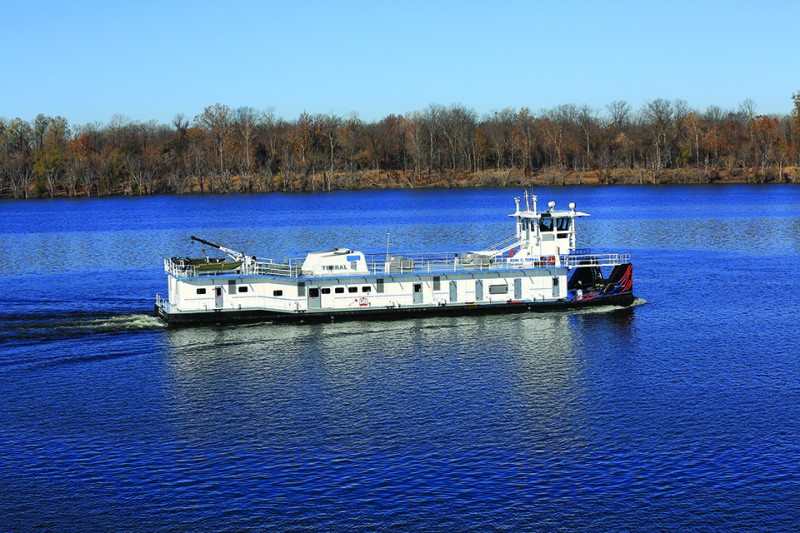Uncle Sam is concerned about the mental health of mariners during the pandemic and is seeking ways to help.
The Covid-19 Working Group of the U.S. Committee on the Maritime Transportation System, an arm of the U.S. DOT, is urging mariners to complete a survey that has been developed to assesses their needs and concerns during the pandemic.
“The goal is to understand what supports mariners may need, and what aspects of their jobs are contributing to increased stress or anxiety during this time,” said Marissa G. Baker, assistant professor in the Department of Environmental and Occupational Health Sciences at the University of Washington, who was asked to develop the survey.
Survey results will be shared with federal agencies, maritime unions, maritime training institutions and seafarer welfare organizations, according to a statement by the Coast Guard. It is hoped that maritime stakeholders will use the comments and data to develop programs that target the specific concerns of mariners, Baker told WorkBoat.
The Covid-19 Working Group recognized that mariners are under increased stress during the pandemic and called for the survey.
“The impact of the pandemic on the U.S. Marine Transportation System and merchant mariners, in particular, has been significant in many ways,” the group wrote in a document outlining resources for mariners during Covid published in October. “While all essential workers are experiencing added stress from an at-risk environment, the health and well-being of vessel crews has been highlighted as an issue of concern.”
The working group was established last July to work jointly with federal agencies to address challenges mariners face under the pandemic.
Baker said mariners face many unique challenges. “The Covid-19 pandemic is a very stressful time, and there are many aspects of being on a vessel that can make it even more stressful — such as being isolated from friends and family and not having consistent internet or phone access,” she said. “Changing schedules related to the pandemic, such as having to stay on a vessel longer than intended, can also cause increased stress and anxiety for mariners.”
Baker said she’s starting to receive responses to the survey, but it’s too early to draw any conclusions from the data. “But it does seem that vaccination is of interest to the mariners, as several have reached out to me about this topic,” she said. “There is interest in when they can get vaccinated, how they can get vaccinated and it seems to be not knowing about when they can get vaccinated feels stressful.”
She added that many mariners believe that this was an important topic, and understanding their mental health is “long overdue.”
Mariners from all segments of the industry are encouraged to participate.
The survey takes about 10 minutes, and all responses will remain confidential. It launched on Jan. 22 and closes on May 31. Mariners can skip any question that they do not wish to answer.
The Seafarers Union and other groups are already supporting mariners with mental health programs and “hopefully the data gathered from this survey can supplement policies and programs that are already in place, and will lead to new policies and programs that will help mariners,” Baker said. “Having primary data from a survey might make it more apparent what needs to be done.”





